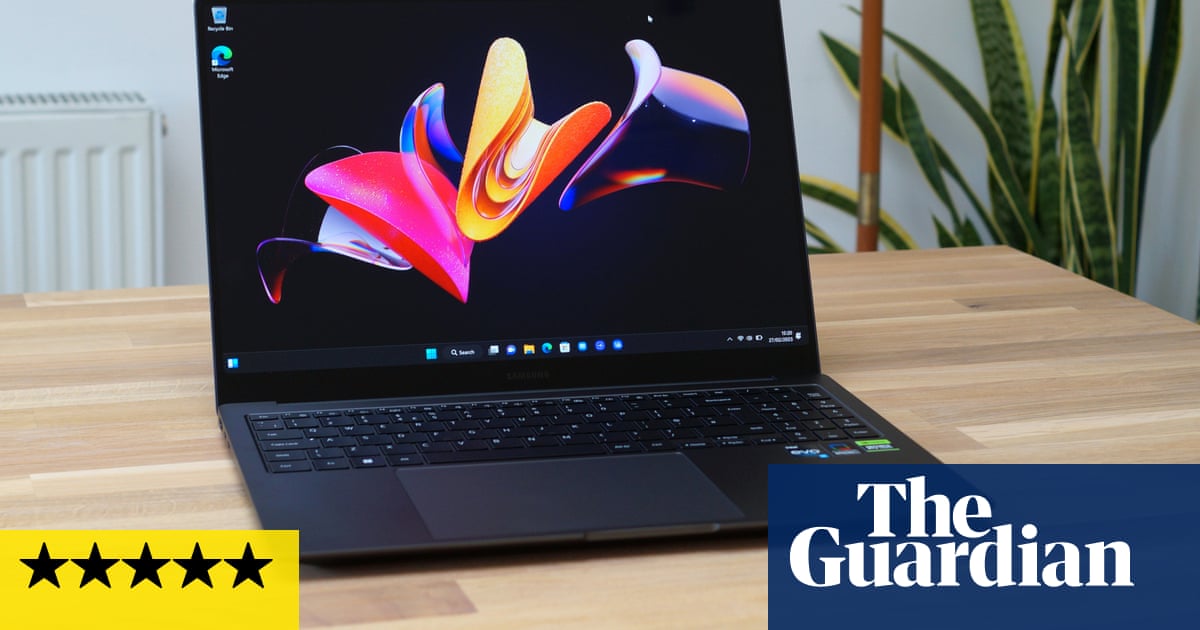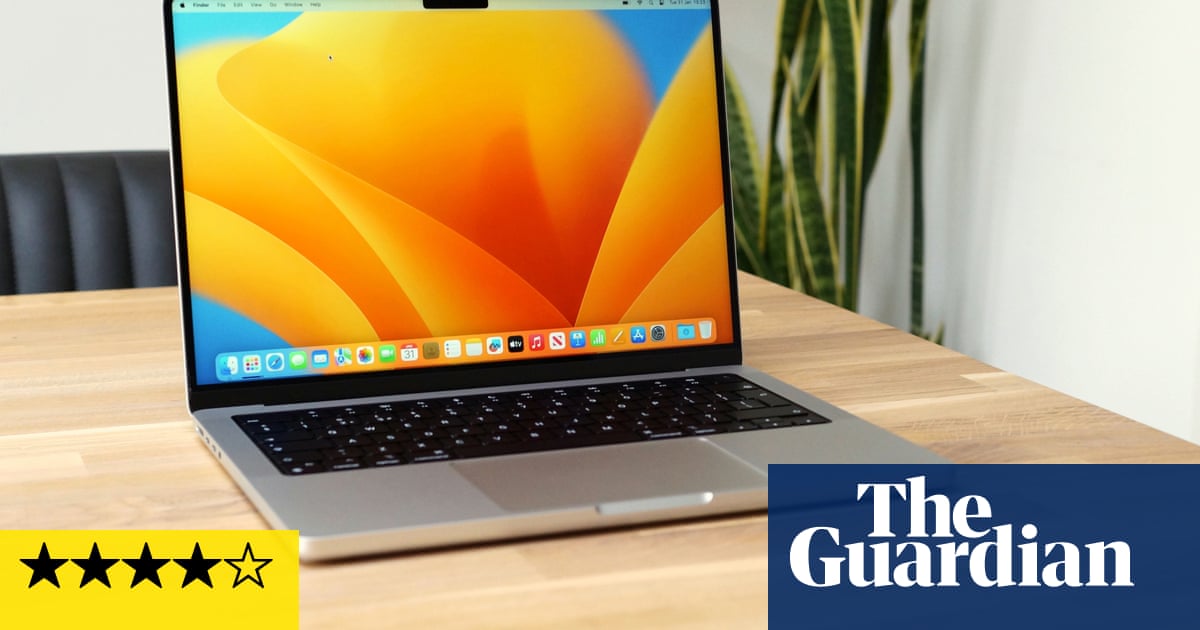
Apple’s latest iPad Pro gets upgraded with the game-changing M1 processor and a new screen that rivals the very best TVs, let alone tablets and laptops.
The fifth-generation iPad Pro comes in two versions, one costing £749 with an 11in screen and the top dog with a 12.9in screen costing £999. Both have the new M1 chip, but only the larger model – reviewed here – has the stunning new screen.
The new screen technology is an evolution of the traditional LCD display called “mini LED”, which has hitherto been the preserve of high-end televisions. An array of 2,596 individual LEDs behind the LCD display only light up behind bright parts of the image, producing super-bright lights and deep, inky blacks in dark areas.
Feed the iPad Pro an HDR movie and you’re treated to arguably the best picture this side of a £1,500 television. Night scenes are a particular treat with lights shining out from the pitch-black darkness, while sunrises burst with colour and vibrancy. With very few rivals reaching a brightness of more than 500nits (a standard measure of screen brightness), only the very best smartphone screens such as that on the Galaxy S21 Ultra come anywhere near close to the iPad Pro’s peak HDR brightness of 1,600nits.
Outside of HDR video the screen is restricted to the same 600nits brightness as previous iPad Pros, which is still far brighter than most tablets, laptops and monitors, but helps keep the solid 10 hours of battery life.
Specifications
Screen: 12.9in 2732x2048 Liquid Retina XDR display (264 pixels per inch)
Processor: Apple M1 (8-core CPU/8-core GPU)
RAM: 8 or 16GB
Storage: 128/256/512GB or 1/2TB
Operating system: iPadOS 14.5
Camera: 12MP wide, 10MP ultrawide and Lidar scanner, 12MP TrueDepth selfie camera
Connectivity: Wifi 6 (5G optional, nano/eSim), Bluetooth 5, Thunderbolt 3/USB 4
Dimensions: 280.6 x 214.9 x 6.4mm
Weight: 682g (4G version: 684g)
M1 power
The 2021 iPad Pro has Apple’s desktop M1 processor, the same used to great success in the MacBook Air, MacBook Pro, Mac mini and new 24in iMac.
The chip makes it the fastest tablet available measured by both benchmarks and real-world use, beating Androids such as Samsung’s Galaxy Tab S7+ and Windows 10 machines such as Microsoft’s Surface Pro 7 alike.
It is also at least 1.5x faster in benchmarks than the 2020 model, which was itself no slouch.
The tablet lasts up to 10 hours of browsing or movie watching, or well over nine hours of work using text editors, web browser, Affinity Photo, Evernote and various chat apps, which is about an hour longer than last year’s model but far short of the 16 hours the MacBook Air lasts for.
USB 4/Thunderbolt 3
New for the M1 iPad Pro is the upgrade of the USB-C port to full USB 4 and Thunderbolt 3 support, which quadruples the bandwidth of the connection and opens up further expansion capabilities.
It worked as advertised with the Anker PowerExpand Elite 13-in-1 Thunderbolt 3 Dock attaching an external 4K monitor, keyboard, mouse, card reader, flash drives and ethernet. It also supports the fastest external storage drives such as the very fast 1TB G Drive Mobile Pro SSD. Copying a 14.91GB zip file to and from the SSD took just 19 and 22 seconds respectively.
Still just iPadOS
The tablet runs Apple’s iPadOS, which has limited multi-tasking capabilities compared with macOS, leaving the M1’s power confined to individual apps.
Some games and creative, image and video editing apps can use that high-level performance, but I’m not convinced many people will buy an iPad this expensive for professional creative work instead of a similarly-priced Mac.
The iPad Pro’s limitations as a standard computer are but best summed up by this example: you can hook it up to an external monitor but iPadOS can only mirror what’s on the iPad’s screen, which is not very useful, unless an app is coded to specifically use a second screen. A few apps, such as Affinity Photo or LumaFusion, show a previews of your finished work on the monitor while editing on the iPad’s screen. But they are the – often expensive – exception to the rule.
The iPad Pro has its advantages too. It has the best screen Apple makes outside of its £4,600 Pro Display XDR. It has long and reliable battery life, the option of 5G for data on the road and it is more portable than anything else. And you have been able to get real work done on an iPad for a while.
There are also lots of things you can do with an iPad that you couldn’t with a regular computer without extra hardware. These include being a tennis coach, automatically transcribing sounds into musical score and displaying painted 3D models in the real world using augmented reality.
It is these novel uses that benefit the most from having evermore powerful chips opening up new and interesting capabilities, even when for the average user it may be complete overkill.
Centre Stage camera
The front-facing camera on the iPad Pro has been upgraded to a 12-megapixel ultrawide angle camera and given some very useful automatic framing skills for video calls called “Centre Stage”. The camera pans and zooms to keep you and others in view as you move about the room. It makes it a lot easier to get a good view and works with any video calling app, not just Apple’s FaceTime.
It’s a feature found on dedicated video conference cameras and some smart displays, but combined with the excellent microphones and speakers in the tablet it turns the iPad Pro into the very best portable video calling device you can get – one that is simple and just works better than anything else.
Sustainability
Apple does not provide an estimated lifespan for the iPad Pro’s battery but it can be replaced for £99. The tablet is generally repairable with the out-of-warranty service cost being £636.44, which includes the screen. The previous generation iPad Pro was only awarded three out of 10 for repairability by the specialist iFixit.
The tablet has a 100% recycled aluminium body, plus 100% recycled tin in the solder of its main board, flash and wireless charger, 98% recycled rare earth elements and at least 35% recycled plastic used in multiple components. Apple is also using renewable energy for final assembly of the machine, and breaks down the tablet’s environmental impact in its report.
Apple also offers trade-in and free recycling schemes, including for non-Apple products.
Observations
It supports the second-generation Apple Pencil (a £119 optional extra) for drawing, creating markups and signing documents among other things.
The £329 Magic Keyboard is an excellent, but very expensive, optional accessory that helps the iPad Pro be a better computer replacement without losing the ability to quickly just use it as a tablet.
Price
The iPad Pro comes in space grey or silver and starts at £749 for the 11in version and £999 for the 12.9in version. Both come with wifi-only and 128GB of storage.
Models with 5G cost an additional £150 plus mobile broadband subscription.
For comparison, Apple’s iPad costs £329, the iPad Air costs £579, Samsung’s Galaxy Tab S7+ costs £799, Microsoft’s Surface Pro X costs from £999 and the Surface Pro 7 costs from £799.
Verdict
The 12.9in iPad Pro for 2021 is quite a device. It has one of the very best displays, making it killer for video. It has a lot of power with the M1 chip and a reliable nine-plus hours of battery life. It even has Thunderbolt 3 connectivity and optional 5G.
However, at the end of the day it’s still just an iPad, which means dealing with some limitations as a computer replacement compared to a similarly priced laptop. But it is the sort of multipurpose device that becomes invaluable, whether it’s for the best-in-class video calling experience, the broad media app support or even the novel uses such as tennis coaching, art production or even video editing.
Without a doubt the iPad Pro is the best tablet you can buy, but a super-expensive one that will be total overkill for most.
Pros: good battery life, extremely fast M1 chip, stunning mini LED screen, optional 5G, USB-C/Thunderbolt 3, great speakers, Face ID, good rear camera with lidar for AR, large app library.
Cons: very expensive, no kickstand without case, no headphone socket, still has limitations as a PC/Mac replacement.












